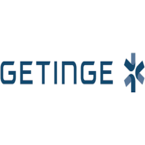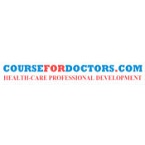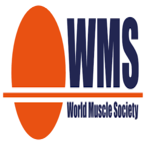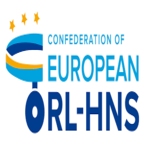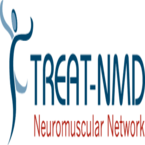Scientific Sessions
Session on Holistic Approaches to Physical Education Fitness
Holistic approaches to physical education fitness encompass a comprehensive and integrated approach to promoting overall well-being, encompassing physical, mental, emotional, and social dimensions. Unlike traditional fitness programs focused solely on physical conditioning, holistic approaches prioritize balance, harmony, and mindfulness in achieving optimal health. These programs emphasize the importance of incorporating diverse physical activities, such as yoga, tai chi, dance, and outdoor recreation, to cater to individual preferences and promote holistic fitness. Moreover, they integrate elements of nutrition education, stress management, mindfulness practices, and social support to foster a holistic understanding of health and wellness. By addressing the interconnectedness of body, mind, and spirit, holistic approaches to physical education fitness aim to empower individuals to cultivate a healthy lifestyle that extends beyond exercise routines. They promote self-awareness, self-care, and resilience, fostering lifelong habits that support overall well-being and enhance quality of life. Ultimately, holistic fitness programs offer a holistic pathway to achieving optimal health and vitality, promoting longevity and fulfillment in life.
Session on Innovations in Orthopedic Sports Medicines
Innovations in orthopedic sports medicine are transforming the field, offering advanced solutions for athletes and individuals with musculoskeletal injuries. From cutting-edge surgical techniques to novel rehabilitation approaches, these innovations aim to optimize recovery, improve outcomes, and enhance athletic performance. One significant advancement is the use of minimally invasive arthroscopic procedures for diagnosing and treating sports-related injuries. These techniques enable surgeons to visualize and repair damaged tissues with smaller incisions, leading to quicker recovery times and reduced postoperative complications. Additionally, regenerative medicine therapies, such as platelet-rich plasma (PRP) injections and stem cell treatments, are revolutionizing orthopedic sports medicine by harnessing the body's natural healing processes to repair damaged tissues and promote tissue regeneration. Furthermore, advancements in wearable technology, biomechanics, and sports rehabilitation techniques are providing athletes with personalized training programs, real-time performance feedback, and injury prevention strategies to optimize athletic performance and reduce the risk of injuries. By integrating these innovative approaches into orthopedic sports medicine practice, clinicians can offer comprehensive care that addresses the unique needs of athletes and individuals with musculoskeletal conditions, ultimately enhancing their quality of life and enabling them to return to their active lifestyles safely and effectively.
Session on Rehabilitation Techniques in Physiotherapy
Rehabilitation techniques in physiotherapy encompass a diverse array of interventions aimed at restoring function, relieving pain, and enhancing mobility for individuals recovering from injuries, surgeries, or chronic conditions. These techniques are tailored to the specific needs and goals of each patient, emphasizing a holistic approach to rehabilitation. One common rehabilitation technique is therapeutic exercise, which includes strengthening, stretching, and conditioning exercises designed to improve muscle strength, flexibility, and endurance. These exercises help restore mobility, stability, and balance, facilitating the return to daily activities and sports participation. Manual therapy techniques, such as joint mobilization, soft tissue mobilization, and massage, are also integral components of physiotherapy rehabilitation. These hands-on techniques help alleviate pain, reduce inflammation, and improve joint mobility by targeting specific areas of dysfunction. Furthermore, modalities such as ultrasound, electrical stimulation, and heat/cold therapy may be used to complement exercise and manual therapy interventions, providing pain relief, promoting tissue healing, and reducing swelling. By combining these rehabilitation techniques, physiotherapists create individualized treatment plans that address the underlying impairments and functional limitations of each patient, facilitating optimal recovery and promoting long-term health and well-being.
Session on Exploring Occupational Therapy in Sports
Occupational therapy (OT) plays a vital role in sports by addressing the physical, cognitive, and psychosocial aspects of athletic performance and participation. While traditionally associated with rehabilitation, OT in sports focuses on maximizing athletes' functional abilities, facilitating injury prevention, and promoting overall well-being. One key aspect of OT in sports is injury prevention and performance enhancement. Occupational therapists work closely with athletes to assess movement patterns, biomechanics, and ergonomics, identifying areas for improvement and implementing strategies to reduce the risk of injuries. This may involve biomechanical analysis, ergonomic assessments, and personalized training programs to optimize performance and prevent overuse injuries. Moreover, OT interventions in sports encompass a wide range of techniques, including manual therapy, therapeutic exercise, neuromuscular re-education, and assistive technology, to address musculoskeletal injuries, improve mobility, and enhance athletic performance. Furthermore, occupational therapists play a crucial role in supporting athletes' mental health and psychosocial well-being, addressing factors such as stress, anxiety, and confidence that may impact performance and participation in sports. By integrating occupational therapy into sports programs, athletes can benefit from a holistic approach to health and wellness, addressing physical, cognitive, and emotional factors to optimize performance, prevent injuries, and promote lifelong participation in sports.
Session on Kinesiology: Unveiling Physical Activities' Science
Kinesiology unveils the science behind physical activity, exploring how the body moves, adapts, and responds to exercise. As an interdisciplinary field, kinesiology integrates anatomy, physiology, biomechanics, psychology, and motor control to understand human movement and optimize performance across various contexts, including sports, rehabilitation, and occupational settings. Through research and practical applications, kinesiologists investigate the mechanisms underlying movement patterns, muscle function, and coordination, aiming to enhance athletic performance, prevent injuries, and improve overall health and well-being. This may involve biomechanical analysis, exercise physiology testing, and motor skill assessments to identify areas for improvement and develop targeted interventions. Moreover, kinesiology extends beyond physical activity to encompass broader aspects of health promotion and disease prevention, addressing lifestyle factors such as nutrition, stress management, and sleep hygiene that impact physical performance and overall wellness. By unraveling the intricacies of human movement and physical activity, kinesiology provides valuable insights into optimizing performance, preventing injuries, and promoting lifelong health and vitality for individuals of all ages and abilities.
Session on Metabolic Insights: Exercise Physiology and Metabolism
Metabolic insights provided by exercise physiology offer a deeper understanding of how physical activity influences the body's metabolism, energy expenditure, and overall health. Exercise physiology explores the intricate interplay between exercise, metabolism, and physiological responses, shedding light on the mechanisms underlying the benefits of physical activity. During exercise, the body undergoes dynamic metabolic changes to meet the increased energy demands, involving complex interactions between carbohydrates, fats, and proteins to fuel muscular activity. Exercise physiology elucidates how different exercise intensities, durations, and modalities impact substrate utilization, metabolic rate, and post-exercise energy expenditure. Furthermore, exercise physiology provides insights into the metabolic adaptations induced by regular physical activity, such as improved insulin sensitivity, lipid profile, and cardiovascular function. Understanding these metabolic responses informs the development of personalized exercise prescriptions for enhancing fitness, managing weight, and preventing chronic diseases like diabetes, obesity, and cardiovascular disorders. By unraveling the metabolic intricacies of exercise, exercise physiology offers valuable insights into optimizing health and performance, guiding evidence-based exercise recommendations, and promoting lifelong well-being through physical activity.
Session on Fueling Excellence: Advancements in Sports Nutrition
Fueling excellence in sports nutrition involves leveraging advancements in research, technology, and dietary strategies to optimize athletic performance, recovery, and overall well-being. As athletes strive for peak performance, sports nutrition plays a crucial role in providing the nutrients, hydration, and fuel necessary to support their training, competition, and recovery needs. One key advancement in sports nutrition is the individualization of dietary strategies, taking into account factors such as age, gender, body composition, training load, and specific performance goals. This personalized approach enables athletes to tailor their nutrition plans to meet their unique energy requirements, nutrient needs, and dietary preferences. Furthermore, advancements in sports nutrition science have led to innovations in dietary supplements, functional foods, and sports drinks designed to enhance performance, promote recovery, and support overall health. From optimizing macronutrient ratios to timing nutrient intake around training sessions, sports nutrition continues to evolve to meet the evolving needs of athletes across various sports and disciplines. By staying abreast of the latest research and innovations in sports nutrition, athletes can gain a competitive edge, maximize their training adaptations, and achieve their full potential in their respective sports.
Session on Comprehensive Approach to Sports Injuries, Treatment, and Management
A comprehensive approach to sports injuries, treatment, and management encompasses a multidisciplinary approach that addresses not only the physical aspects but also the psychological, social, and rehabilitative aspects of injuries. It begins with injury prevention strategies, including proper warm-up, conditioning, and equipment use, to reduce the risk of injuries during sports activities. In the event of an injury, prompt and accurate diagnosis is essential for effective treatment. This may involve a combination of clinical assessment, imaging studies, and diagnostic tests to determine the extent and nature of the injury. Treatment strategies vary depending on the type and severity of the injury but may include rest, ice, compression, elevation (RICE), physical therapy, medication, and in some cases, surgery. Rehabilitation and recovery play a crucial role in the management of sports injuries, focusing on restoring function, mobility, and strength while minimizing the risk of re-injury. This often involves a tailored exercise program, manual therapy techniques, and gradual return to sports-specific activities under the guidance of a rehabilitation specialist or physical therapist. Moreover, comprehensive management of sports injuries extends beyond the physical aspects to include psychological support, nutritional guidance, and education on injury prevention and performance optimization. By addressing the multifaceted aspects of sports injuries, a comprehensive approach aims to facilitate optimal recovery, minimize long-term complications, and promote the athlete's overall health and well-being, allowing them to return to their sport safely and confidently.
Session on The Intersection of Dentistry and Sports: Sports Dentistry
The intersection of dentistry and sports, known as sports dentistry, focuses on addressing oral health issues and injuries specific to athletes. Participation in sports exposes athletes to various dental injuries, such as dental trauma, fractures, and soft tissue injuries, which can impact their performance and overall well-being. Sports dentistry encompasses preventive measures, including custom mouthguards, to protect athletes' teeth and gums during sports activities. These mouthguards are designed to absorb and distribute impact forces, reducing the risk of dental injuries. Furthermore, sports dentists are trained to diagnose and treat dental injuries promptly, providing timely interventions to minimize the impact on athletes' oral health and athletic performance. This may involve restorative procedures, such as dental fillings or crowns, and management of dental emergencies, such as avulsed or fractured teeth. By promoting oral health awareness and providing specialized care tailored to athletes' needs, sports dentistry plays a vital role in safeguarding athletes' oral health and supporting their overall athletic endeavors.
Session on Strategies and Innovations in Sports Marketing and Media
Strategies and innovations in sports marketing and media are continuously evolving to engage fans, attract sponsors, and maximize revenue streams in the dynamic world of sports. With the proliferation of digital platforms and social media, sports organizations are leveraging technology to reach broader audiences and create immersive fan experiences. One key strategy is content diversification, where sports organizations produce a wide range of content, including live broadcasts, behind-the-scenes footage, interactive fan experiences, and original programming, to cater to diverse audience preferences and interests. Moreover, data analytics and artificial intelligence are being utilized to personalize content delivery, enhance fan engagement, and drive targeted marketing campaigns. By analyzing fan behavior, preferences, and consumption patterns, sports marketers can tailor content and promotions to individual interests, maximizing fan satisfaction and brand loyalty. Furthermore, partnerships with influencers, athletes, and celebrities are becoming increasingly prevalent in sports marketing, amplifying brand reach and credibility while tapping into niche audiences and demographics. Overall, innovative strategies in sports marketing and media are reshaping the landscape of sports entertainment, offering new avenues for fan interaction, sponsorship opportunities, and revenue generation in the ever-evolving sports industry.
Session on Mind Matters: Sports Psychology and Athlete Counseling
Mind matters in sports psychology and athlete counseling, recognizing the profound impact of mental factors on athletic performance, well-being, and success. Sports psychologists and counselors work with athletes to address psychological challenges, optimize mental skills, and enhance overall performance. One key aspect of sports psychology is mental skills training, which focuses on developing techniques such as goal setting, visualization, relaxation, and self-talk to improve concentration, confidence, and resilience in athletes. By mastering these mental skills, athletes can better manage pressure, overcome setbacks, and perform at their best under challenging circumstances. Moreover, sports psychologists provide counseling and support for athletes dealing with performance anxiety, stress, burnout, and other psychological issues. Through individual or group therapy sessions, athletes learn coping strategies, stress management techniques, and resilience-building exercises to navigate the demands of elite sports and maintain mental well-being. By addressing the psychological aspects of athletic performance, sports psychology and athlete counseling play a crucial role in maximizing potential, fostering holistic development, and promoting long-term success and fulfillment in sports.
Session on Exploring Traditional Medicine for Sports Injuries
Exploring traditional medicine for sports injuries involves considering alternative and complementary therapies rooted in ancient healing practices. While modern medicine provides effective treatments for sports injuries, traditional medicine offers holistic approaches that may complement conventional treatments and promote overall well-being. Traditional practices such as acupuncture, herbal medicine, massage therapy, and Ayurveda have been used for centuries to address pain, inflammation, and musculoskeletal injuries. Acupuncture, for example, involves the insertion of thin needles into specific points on the body to stimulate healing and relieve pain. Herbal remedies, derived from plants and natural substances, may have anti-inflammatory and analgesic properties that aid in recovery from sports injuries. Furthermore, techniques like massage therapy and Ayurvedic treatments focus on restoring balance and promoting circulation to injured tissues, facilitating healing and reducing recovery time. While traditional medicine approaches may vary in efficacy and evidence-based support, they offer athletes alternative options to explore in conjunction with conventional treatments, fostering a comprehensive approach to managing sports injuries and promoting overall wellness.
Session on Needle Precision: Sports Acupuncture Strategies
Needle precision in sports acupuncture strategies involves the targeted application of acupuncture techniques to address specific musculoskeletal issues, enhance athletic performance, and promote overall well-being in athletes. Acupuncture, a key component of traditional Chinese medicine, utilizes thin needles inserted into specific points on the body to stimulate healing and restore balance. In sports acupuncture, practitioners focus on identifying and treating areas of muscular tension, pain, and dysfunction commonly encountered in athletes. By targeting acupuncture points associated with these issues, practitioners aim to reduce inflammation, alleviate pain, and improve range of motion, facilitating recovery from sports injuries and optimizing athletic performance. Moreover, sports acupuncture strategies may also encompass adjunctive techniques such as electroacupuncture, cupping therapy, and moxibustion, which further enhance treatment outcomes and promote musculoskeletal health. By incorporating needle precision into sports acupuncture strategies, practitioners can provide athletes with effective, personalized treatments that address their specific needs, support injury prevention, and contribute to their overall physical and mental well-being.
Session on Beyond the Surface: Unraveling Factors Affecting Sports Performances
Beyond the surface lies a complex interplay of factors that influence sports performances, transcending physical abilities to encompass psychological, social, environmental, and even genetic elements. While athleticism and skill are crucial, understanding and addressing these underlying factors can significantly impact an athlete's success and well-being. Psychological factors such as confidence, motivation, focus, and resilience play a vital role in sports performance, shaping athletes' mindset and ability to cope with pressure, setbacks, and high-stakes competitions. Social support, coaching styles, and team dynamics also influence athletes' confidence, motivation, and overall performance. Furthermore, environmental factors such as climate, altitude, and playing conditions can affect athletes' endurance, hydration, and adaptation to their surroundings. Additionally, genetic predispositions, including biomechanics, muscle fiber composition, and injury susceptibility, contribute to individual differences in athletic performance. By unraveling these multifaceted factors affecting sports performances, coaches, trainers, and athletes can adopt holistic approaches to training, preparation, and performance enhancement, ultimately maximizing potential and promoting long-term success in sports.
Session on Eradicating Doping: Advancements in Doping Studies
Eradicating doping in sports is a critical endeavor, and advancements in doping studies are key to achieving this goal. Researchers are continually developing innovative methods and technologies to detect and deter doping practices, ensuring fair play and protecting the integrity of sports competitions. One notable advancement is the development of more sensitive and specific testing techniques, such as liquid chromatography-mass spectrometry (LC-MS) and gas chromatography-mass spectrometry (GC-MS), which enable the detection of a wider range of performance-enhancing substances in athletes' biological samples. These advanced analytical methods help anti-doping agencies stay ahead of emerging doping trends and substances. Moreover, researchers are exploring novel biomarkers and physiological indicators of doping, such as changes in gene expression, protein profiles, and metabolic signatures, which may provide indirect evidence of doping practices. Additionally, advancements in artificial intelligence and machine learning are being utilized to analyze large datasets and identify patterns indicative of doping behavior. By leveraging these advancements in doping studies, anti-doping agencies can strengthen their efforts to deter doping, protect clean athletes, and uphold the values of fairness, integrity, and sportsmanship in competitive sports.
Session on Nutrition-Mind Harmony: Impact of Diet on Mental Wellness
Nutrition-mind harmony underscores the profound impact of diet on mental wellness, highlighting the intricate connection between nutritional choices and mental health outcomes. Research suggests that diet plays a crucial role in regulating mood, cognition, and emotional well-being, with certain nutrients and dietary patterns exerting protective or detrimental effects on mental health. Consuming a balanced diet rich in fruits, vegetables, whole grains, lean proteins, and healthy fats provides essential nutrients, antioxidants, and phytochemicals that support brain function and promote mental resilience. Conversely, diets high in processed foods, sugar, saturated fats, and artificial additives have been linked to an increased risk of mood disorders, cognitive decline, and poor mental health outcomes. Moreover, the gut-brain axis, a bidirectional communication network between the gut microbiota and the central nervous system, influences mood, behavior, and mental health. Emerging research suggests that a diverse and balanced gut microbiome, nurtured by a fiber-rich diet and fermented foods, may support mental wellness by modulating neurotransmitter production, immune function, and inflammation. By fostering nutrition-mind harmony through mindful eating, dietary diversity, and nutrient-rich choices, individuals can nurture their mental well-being and promote resilience against stress, anxiety, and mood disorders. Embracing a holistic approach to health that integrates nutrition and mental wellness empowers individuals to cultivate a balanced lifestyle that nourishes both body and mind, fostering overall vitality and happiness.
